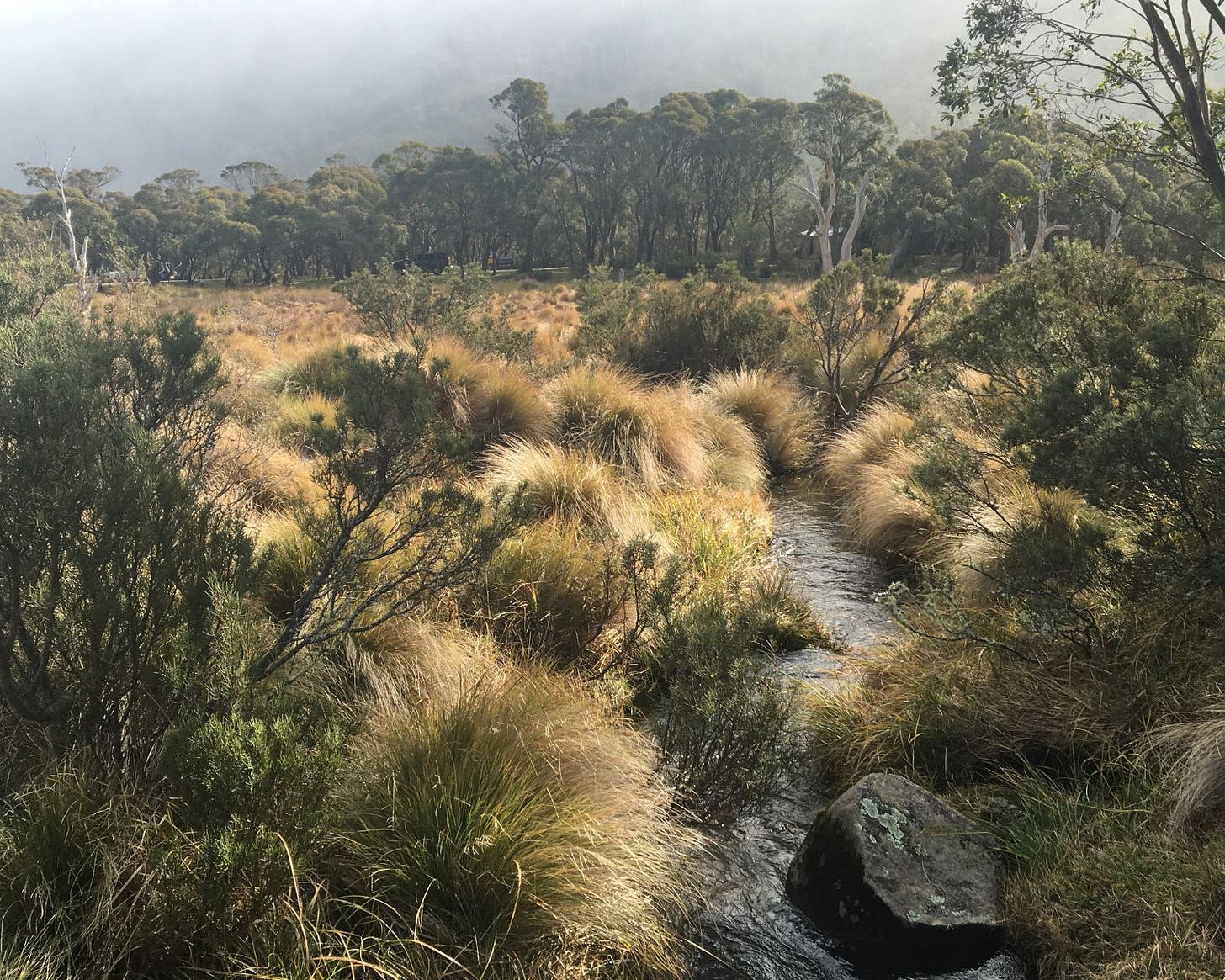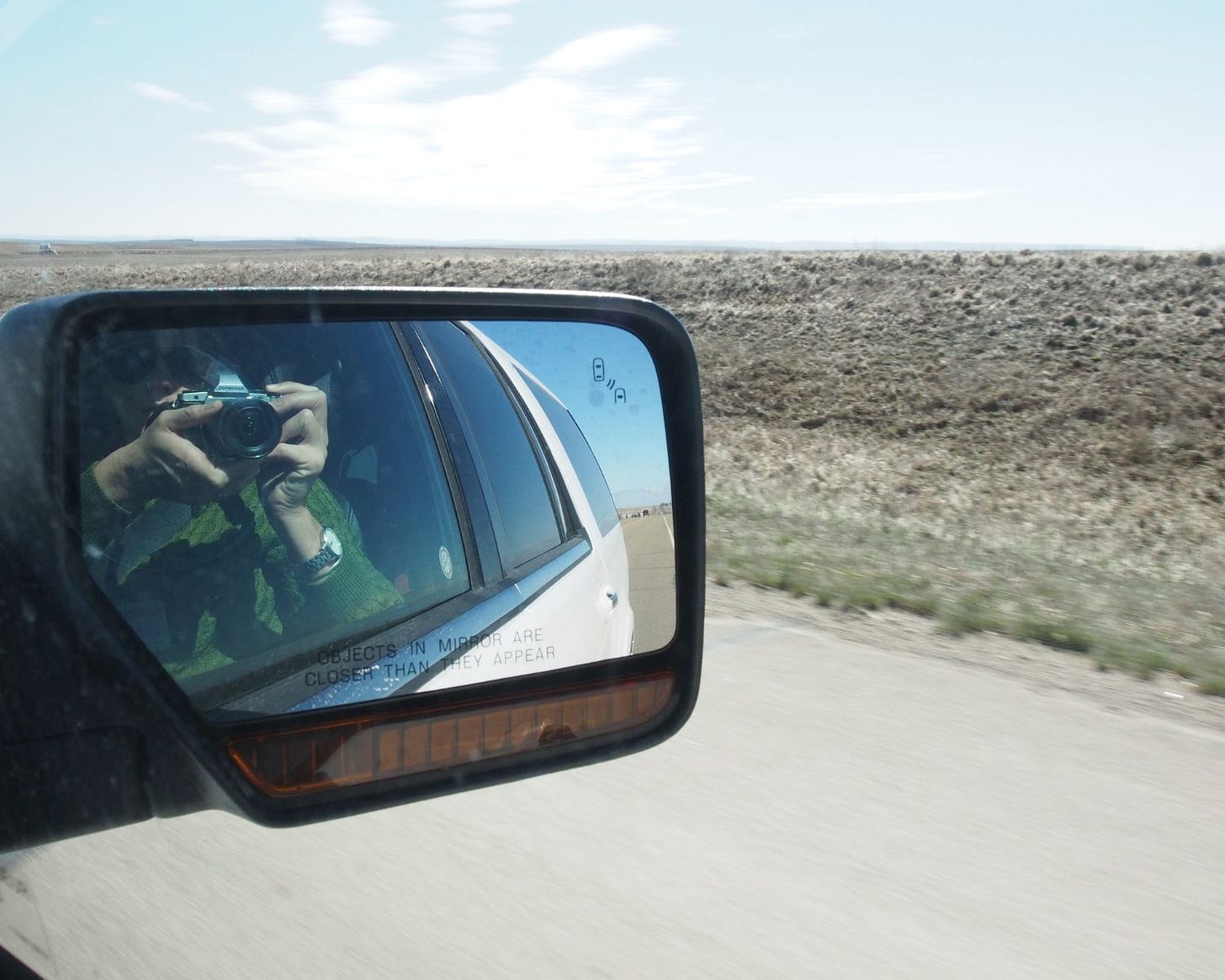In honour of NaNoWriMo (National Novel Writing Month) I’ve set myself a goal of finishing the current draft of my manuscript by the end of the month. I’m currently sitting at 45,000 words and am aiming for the final word count to be around 80,000.
I’ve set this goal knowing it’s ambitious, knowing so much of it hinges on things out of my control (my health, workload, kids etc), knowing, in all likelihood, that it probably won’t happen.
So why set a goal if it feels so far out of the realm of likeliness?
Two reasons:
To practise working towards something while also letting go — of perfectionism, of expectations, of attaching my happiness to an outcome
To find joy and value and growth in the process — to see that it all counts, it all matters, it all adds up to the eventual sum, even if that sum looks different to my imaginings.
I know myself well enough to know I can and will rise to meet deadline pressure. And I also know myself well enough to know that there is a limit to that rise. If I push past it, I burn out. (And I’ve experienced the complete debilitation of burnout. I will do all I can to avoid it ever again.)
To me there’s a funny little juxtaposition at play here: Having a lofty goal like this will help me get more writing done than I otherwise would have, and falling short of it will help me enjoy the process rather than hang my happiness on the outcome.
As I said, I’m about 45,000 words into an 80,000-word manuscript. And 30,000 of those words have been sllllooooow. Like, they’ve taken me well over a year to pull together. But the more recent 15,000 have been written in the last four weeks.
The difference came when I released my expectations of those words. For the first 30,000, I expected them to appear on the page tightly written, in the right order and ultimately worthy of publication. I laboured over them, revisiting each paragraph, going back to the first three chapters over and over and over until I thought they were singing. I agonised over the gaps in my knowledge, the potential plot holes I was writing myself into, the language characters would and wouldn’t use.
In contrast, the more recent 15,000 have been written out of order, in 20-minute bursts where my only goal is to watch the snippet of a scene playing in my head and try to capture it imperfectly on the page. Some of those words have been tapped out on my computer, while others have been translated by the dictation tool in the Notes app of my phone, spoken in weird little bursts while driving. More still have been scribbled into a notebook when an idea pops into my head mid-movie, mid-conversation, mid-something-completely-unrelated.
This 15,000 is full of repetition and exposition and a combination of way too much detail and nowhere near enough. It’s definitely not good enough for publication (hahahahaha). It’s not good enough to show anyone. It’s a mess, it doesn’t sing, it isn’t tight. And I love it.
Because it’s progress, it’s energy, it’s joy and enthusiasm and imperfectly formed and it epitomises showing up, making something, following through. I don’t need to worry about the outcome right now because the outcome isn’t relevant. I’m in the process.
Maybe I’m just engaging in mental gymnastics in order to rationalise the grind, I don’t know. But I’ve found a huge freedom (not to mention fun) in holding both a large goal and a small commitment at the same time.
Last term I ran a three-week Writing as Self-Care retreat for paying subscribers (you can join here for $5AU/month and get immediate access if you’re keen to check it out).
A big part of the retreat was spent trying to re-define what writing can be and coming up with ways of both broadening the definition and shrinking our expectations. ‘Writing’ can be pages and pages of journaling or poetry or fiction or essays, of course, but it can also be a few dot points in the notes app on our phone, or sketching on the back of a receipt while sitting on a train. It can be a voice memo we send ourselves or a word that’s pleasant to say or a scribbled line of dialogue that keeps popping into our heads.
So many people who took the retreat said that applying a more generous definition of writing helped remove many of the challenges they faced when trying to write more. Access, time, space, energy, motivation — those obstacles reduced in size when we worked to open up the definition of writing. It freed us up to write in ways that were accessible and helpful, and as a result, many of us wrote far more (and more joyfully) than we had previously.
What might this look like in real terms?
Maybe it’s having both a big, lofty ambition (write a poem every day, for example) paired with a much smaller actual commitment (write one line per day).
Go walking every day » Put on your shoes and step out the front door.
Daily meditation » Notice one tiny, never-before-seen detail every morning at the bus stop.
Eat more nutritious food » Add one extra vegetable to your plate
For me, while I do have a big, ambitious (probably silly) goal in mind, what I’m committing to is much, much, much smaller. All I require of myself is that I write one paragraph in my draft for six out of seven days a week, in the month of November. That’s probably 50 words, maybe 100.
If I did that, and only that, every day, it would take me about two years to finish the draft. But when things feel fun and free and playful, I’m much more likely to stay. I’ve already seen this at play over the past few weeks. Maybe I’ll aim to write one paragraph but instead write two, or maybe that tiny seed of an idea will explode into a fully fleshed-out scene and before I know it, I’ve written a 2000-word chapter.
Ultimately, I don’t care too much if I reach the 80,000-word goal by the end of the month. I mean, sure, it would be nice. But if I reach that goal mid-December instead, does it really matter? Does it make me less of a writer? No. I am a writer because I write. Whether that writing is a notebook-scribbled line of dialogue while waiting for the kids to finish school or a dot-point list of gratitude-inducing details on my phone or a long-planned-for scene in my manuscript, I’m still writing.
I think we are so much more capable when we are kind to ourselves, and allow for the process to be just as, if not more important, than the outcome.
Do you ever play with the scope of your goals? Have you ever tried holding space for both the big, ambition kind and the tiny, accessible kind?
Also mates, just a heads-up that I’ve got to take a few days off this week, so I may not be across comments as quickly as usual. I’ll check in over the next few days, but just wanted to let you know if there’s a delay, that’s why.
I hope you have some awe-inspiring moments over the coming days, and that you can take good care of yourselves.
Brooke xx









Thanks for these insights, Brooke. I have also been thinking of this practice of taking a deep, deep breath and aiming high, high, high, and then exhaling and just letting it go and dancing on. (Or stumbling, if that happens to be the mood of the day . . . :)
I’m such a fan of this post, Brooke! I love how you’re exploring the energizing tension between a Big Goal and your intention to follow curiosity and creativity. This sounds like an amazing reframe and I’m excited to hear how your process goes. I get a lot out of gamifying things and find it to be a good way to get started and sprint on a goal, but I need to be able to release my grip on perfection. It sounds like you’re going to have a lovely month!